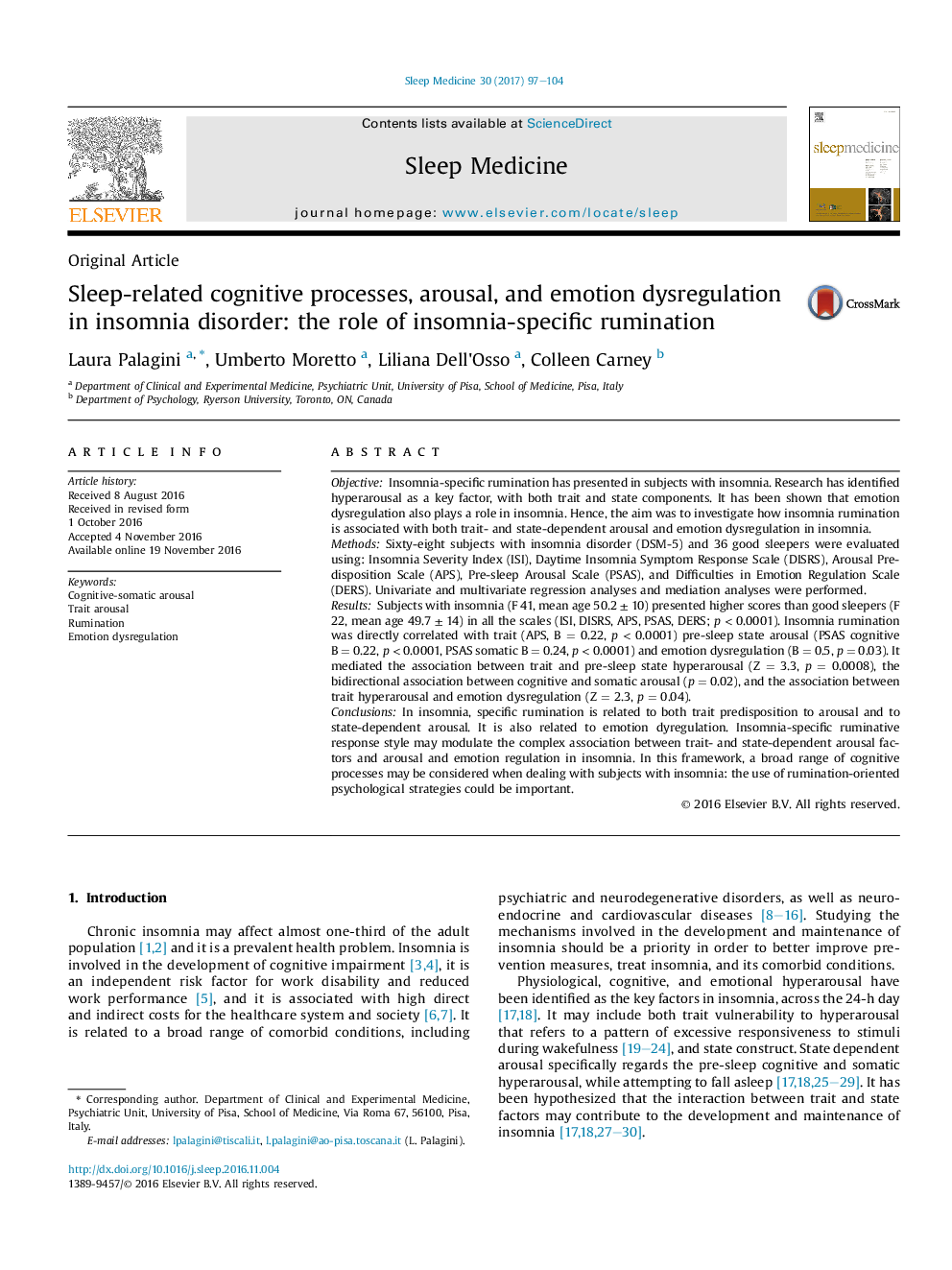| کد مقاله | کد نشریه | سال انتشار | مقاله انگلیسی | نسخه تمام متن |
|---|---|---|---|---|
| 5643815 | 1586479 | 2017 | 8 صفحه PDF | دانلود رایگان |
- Insomnia-specific rumination is related to both trait and state hyperarousal in insomnia.
- Insomnia rumination is also related to emotion dyregulation in insomnia.
- Insomnia-related rumination may contribute to the modulation of arousal and emotion.
- It may mediate the complex association between arousal and emotion in insomnia.
ObjectiveInsomnia-specific rumination has presented in subjects with insomnia. Research has identified hyperarousal as a key factor, with both trait and state components. It has been shown that emotion dysregulation also plays a role in insomnia. Hence, the aim was to investigate how insomnia rumination is associated with both trait- and state-dependent arousal and emotion dysregulation in insomnia.MethodsSixty-eight subjects with insomnia disorder (DSM-5) and 36 good sleepers were evaluated using: Insomnia Severity Index (ISI), Daytime Insomnia Symptom Response Scale (DISRS), Arousal Predisposition Scale (APS), Pre-sleep Arousal Scale (PSAS), and Difficulties in Emotion Regulation Scale (DERS). Univariate and multivariate regression analyses and mediation analyses were performed.ResultsSubjects with insomnia (F 41, mean age 50.2 ± 10) presented higher scores than good sleepers (F 22, mean age 49.7 ± 14) in all the scales (ISI, DISRS, APS, PSAS, DERS; p < 0.0001). Insomnia rumination was directly correlated with trait (APS, B = 0.22, p < 0.0001) pre-sleep state arousal (PSAS cognitive B = 0.22, p < 0.0001, PSAS somatic B = 0.24, p < 0.0001) and emotion dysregulation (B = 0.5, p = 0.03). It mediated the association between trait and pre-sleep state hyperarousal (Z = 3.3, p = 0.0008), the bidirectional association between cognitive and somatic arousal (p = 0.02), and the association between trait hyperarousal and emotion dysregulation (Z = 2.3, p = 0.04).ConclusionsIn insomnia, specific rumination is related to both trait predisposition to arousal and to state-dependent arousal. It is also related to emotion dyregulation. Insomnia-specific ruminative response style may modulate the complex association between trait- and state-dependent arousal factors and arousal and emotion regulation in insomnia. In this framework, a broad range of cognitive processes may be considered when dealing with subjects with insomnia: the use of rumination-oriented psychological strategies could be important.
Journal: Sleep Medicine - Volume 30, February 2017, Pages 97-104
